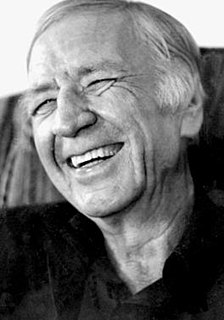A Quote by Denis Leary
Science fiction was never my thing. I have no interest in it. So I don't think I could successfully pull off being on a project like that without really losing my mind.
Related Quotes
It had also been my belief since I started writing fiction that science fiction is never really about the future. When science fiction is old, you can only read it as being pretty much about the moment in which it was written. But it seemed to me that the toolkit that science fiction had given me when I started working had become the toolkit of a kind of literary naturalism that could be applied to an inherently incredible present.
There are loads of sociopolitical, racial, class and future-planet situations that really interest me, but I'm not really interested in making a film about them in a film that feels like reality because people view that in a different way. I like using science fiction to talk about subjects through the veneer of science fiction.
The big characters who occupy science, especially modern science, are all "off" in fundamental ways. I don't think that genius goes hand in hand with being socially inept or being a sociopath or being a misanthrope, but I do think that it is a mind that can think so differently - so beyond how one is supposed to think. I wanted to pay tribute to that mind.
I think the least important thing about science fiction for me is its predictive capacity. Its record for being accurately predictive is really, really poor! If you look at the whole history of science fiction, what people have said is going to happen, what writers have said is going to happen, and what actually happened - it's terrible.
The main difficulty is finding an idea that really excites me. We live in an age when miracles are no longer miracles, and science and the future are losing their sense of mystery. For science fiction, or at least the type of science fiction I write, this development is almost fatal, but I'm still giving it all I've got.
Dad always said that he had enough trouble sorting the fiction out of so-called facts, without reading fiction. He always said that science was already too muddled without trying to make it jibe with religion. He said those things, but he also said that science itself could be a religion, that a broad mind was always in danger of becoming narrow.
A precondition for being a science fiction writer other than an interest in the future is that, an interest - at least an understanding of science, not necessarily a science degree but you must have a feeling for the science and its possibilities and its impossibilities, otherwise you're writing fantasy. Now, fantasy is also fine, but there is a distinction, although no one's ever been able to say just where the dividing lines come.

































